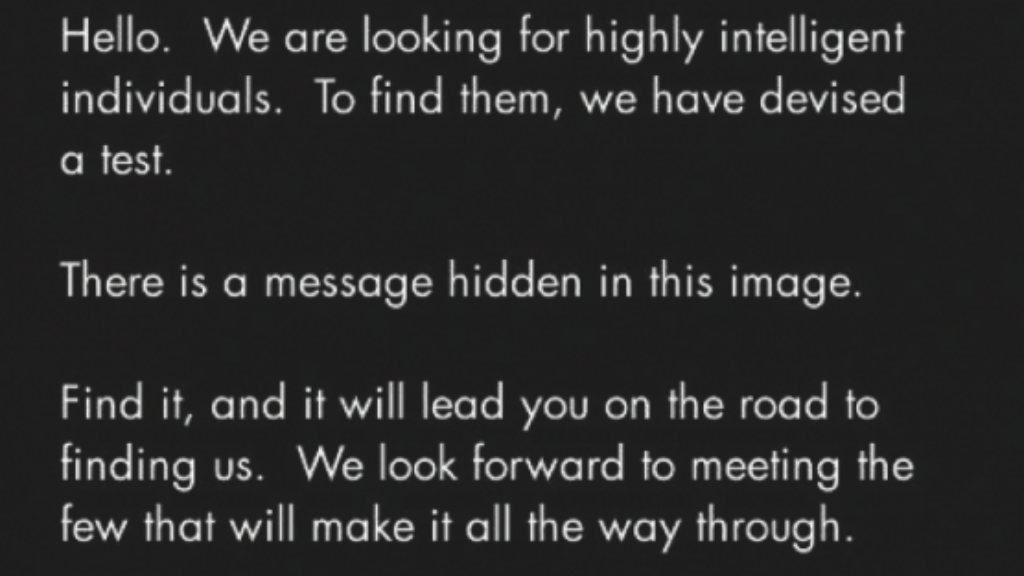Is mystery internet challenge a recruiting tool for the CIA?
Whoever is behind a global quest for the world’s best code-crackers has got the cyber elite hooked. Is it a recruiting tool for the CIA? Or their hacktivist enemies Anonymous? Or a cult for nerds?

An elaborate online quest claiming it wants to select the world’s best and brightest code-crackers has consumed thousands of the global cyber elite.
Exceeding all other kinds of quizzes, pranks or game challenges in its sheer complexity and breadth of range of references to arts, sciences and the occult – the mystery of who is behind a quest called Cicada 3301 has fuelled speculation that it must be the product of one of the world’s biggest and smartest organisations. On the wrong or right side of the law.
Being able to drop real-world clues simultaneously in 14 global cities including Seoul, Warsaw and Sydney – one step in the clue’s quest – has only confirmed the impression that a significant organisation is behind the online challenge, first started in 2012.
It began with this message dropped almost two years ago on messaging board 4chan in January 2012 which triggered a month-long frenzy.
“Hello. We are looking for highly intelligent individuals. To find them we have devised a test.”

The challenge lasted a month. The next year the same thing happened in January 2013 – drawing in thousands more people for a second round.
Codes to crack
In the 2013 edition, an image with one message, led to another message – a piece of verse. The verse was from a book by Liber AL vel Legis by Aleister Crowley, an English occultist who started his own religion.
A hint in the first line of the book led the seekers to rehash the characters of the start of the poem, and generated a website address, which led to one 130MB image. The file was split up to reveal a small boot-up programme that ran a sequence of prime numbers.
The intricacies are detailed here – that is just a taste of the kind of multiplatform chase that took in posters on lamp-posts, literature, Twitter, phone numbers, locations all over the dark web, and multiple different information formats.
More from Channel 4 News: Crack the code to work or GCHQ
Common themes in the Cicada challenge are prime numbers and classical literature tending to the occult. Also mixed in are scripts from the ancient world, a coding technique used by Julius Caesar for his private letters, and the latest toughest challenges in cryptography.
One forum commentor put it this way: “Basically it is recruitment quest of puzzles based on classical literature and pretty hard core encrypting. Common thing that sticks out from every Cicada 3301 puzzle are PRIME NUMBERS. Beautiful PRIME NUMBERS.
Murky motives
The test is impressive but the motives are still murky. Intelligence agencies use quizzes and challenges to recruit. But not – commonly – ones that draw in such a wide range of obscure references in such an anarchic chase.
GCHQ’s yearly version of a recruitment test set out a number challenge – though unfortunately the answers could be found on Google in 2011.
Allegedly people have already been chosen by the two Cicada 3301 quests. But who they are and what they have been chosen for is unknown. They aren’t saying.
One anonymous user claims that Cicada 3301 is a secret global society of military officers, diplomats and academics – “dissatisfied with the direction of the world” and linked to no government. His warning sounds just as murky as any Alestair Crowley poem.
“I was part of what you call 3301/Cicada for more than a decade, and I’m here to warn you: stay away. This is a dangerous organization. While I agree with many of the goals, their ways are nefarious. In fact, I think it is like a left-hand path religion disguised as a progressive scientific organization. I realise this is a strong statement, but I will provide important evidence to support these claims.
“[they are] much like a think tank in that [their] primary focus is on researching and developing techniques to aid the ideas [they] advocate: liberty, privacy, and security.”
No formal organisation has claimed the game at all… and it seems too elaborate to be some kind of advertising or promotional ploy. It could be an alternate reality game done for fun – but it is also surprising that there has been no attempt to monetise what is huge and complex creation.
People will be watching for a third quest in January 2014, to see if there is another round of this modern grail quest.
But given how good these guys are at disguising things, it may take us no further in knowing whether the people behind it are an elite secret society, an intelligence agency or some Scientology-like cult for people who are really good at maths.